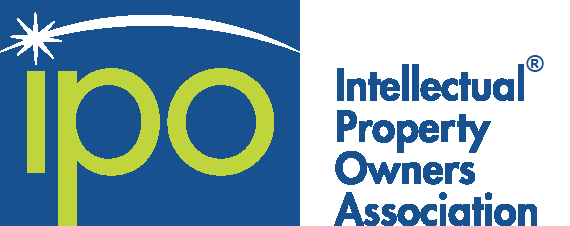On April 16 a subcommittee of the House Energy and Commerce Committee held a hearing on the draft Targeting Rogue and Opaque Letters Act (TROL Act). Four witnesses testified. Chairman MICHAEL BURGESS (R-Tex.) said he intended to move the bill forward in the House and believed it could become law if amended to narrowly address the problem of abusive patent demand letters while respecting the Constitution.
Burgess said the surge of state legislation on patent demand letters unintentionally has caused some problems for patent owners. State courts should not be allowed to determine the reasonable cost of patent licenses and no state regulation should disregard patent owners’ First Amendment speech rights.
He noted the Federal Circuit has held that federal patent law preempts state enforcement actions against patent assertion activities unless those activities are “objectively baseless” and done in bad faith. The Noerr-Penningtonrequirements, which protect patent assertions from any form of liability unless they constitute “sham” litigation, also raises questions about regulation of patent demand letters.
Witness DAVID LONG, on behalf of Innovation Alliance, testified in support of the TROL Act, which he said was a “balanced, targeted measure” for addressing bad faith demand letters. He said providing notice of patents and potential infringement played an important role in the patent system. Further, he said, the bulk of business-to-business demand letters represented legitimate attempts to communicate concerns about possible infringing activity.
GREGORY DOLIN, professor at the University of Baltimore, explained that patent demand letters are a means often employed and encouraged to avoid litigation by beginning a “negotiated solution to the alleged infringement, or causing the alleged infringer to stop the infringing activity without the need for judicial intervention.” He supported preempting state legislation, which he said was not only “substantively problematic, but also treads on the exclusive federal domain in the area of patent law.” He expressed concern that the bill might encourage patent owners to file lawsuits rather than risk adverse legal consequences for sending demand letters.
DIANE LETTELLEIR, on behalf of United for Patent Reform, said “patent trolls” often send vague, misleading, or deceptive letters to businesses and demand that those businesses immediately purchase licenses or face litigation. She said the assertions “often take the form of statements of broad concepts and general business methods . . . covering the use of technology in all areas of e-commerce and mobile retailing, in addition to specific software innovations.” She suggested the bill could be improved by removing the requirement of “a pattern or practice of sending” demand letters, removing the definition of “bad faith” and the requirement that bad faith must be demonstrated, requiring the sender to identify allegedly infringed claims, and deleting the affirmative good faith defense.
CHARLES DUAN of Public Knowledge said the bill could be strengthened in a number of ways. States should not be preempted from legislating to regulate patent demand letters. The TROL Act should serve as a floor, rather than a ceiling, so that individual states could continue to innovate to provide their citizens with protections. He said a bill to regulate patent demand letters was only a “small piece of a larger puzzle,” albeit an important one, to address abusive patent assertion practices.
House Energy and Commerce Ranking Member FRANK PALLONE (D-N.Y.) said he did not support the draft bill because it would preempt state legislation. Witness statements and a video recording of the hearing are available on the committee website.
On April 22 the Subcommittee on Commerce, Manufacturing, and Trade of the House Energy and Commerce Committee approved the draft Targeting Rogue and Opaque Letters Act (TROL Act) on a party line vote. The subcommittee adopted an amendment offered by Subcommittee Chairman MICHAEL BURGESS (R-Tex.) that replaces the affirmative defense in the original draft with a narrower approach. The new language adapts to patent demand letter context a bona fide defense from the Fair Debt Collection Practices Act that allows debt collectors to avoid liability if they can prove the violation was a bona fide mistake.
IPO supports federal legislation along the lines of the TROL Act, including preemption of state laws, but recommends clarification of language. The draft bill, a video of the hearing, and the text of all amendments offered during the markup, are available on the committee website.
Unsuccessful amendments were offered by Ranking Member JAN SCHAKOWSKY (D-Ill.) and Rep. JOSEPH KENNEDY (D-Mass.) to heighten FTC authority and remove a number of provisions including the requirement that communications covered be in bad faith, the requirement of a “pattern or practice” of sending such communications, and a provision preempting state laws on patent demand letters. Burgess introduced but immediately withdrew an amendment that would create a presumption of bad faith where senders of demand letters if ignored recipient requests for more information.
On April 29 the House Energy and Commerce Committee approved H.R. 2045, the Targeting Rogue and Opaque Letters Act (TROL Act), on a party line vote. Republicans rejected an amendment offered by Rep. ANNA ESHOO (D-Calif.) and approved language authored by Commerce, Manufacturing, and Trade Subcommittee Chairman MICHAEL C. BURGESS (R-Tex.) and Rep. MARCY KAPTUR (D-Ohio) and voted out of the Subcommittee last week on a similar party line vote.
Committee Chairman FRED UPTON (R-Mich.) said there would be time to work out issues with the bill before it came up for a vote in the House, likely as part of another piece of legislation. IPO supports federal legislation along the lines of the TROL Act, including preemption of state laws, but recommends clarification of language. The bill, a video of the hearing, and a press release, are available on the committee website.

